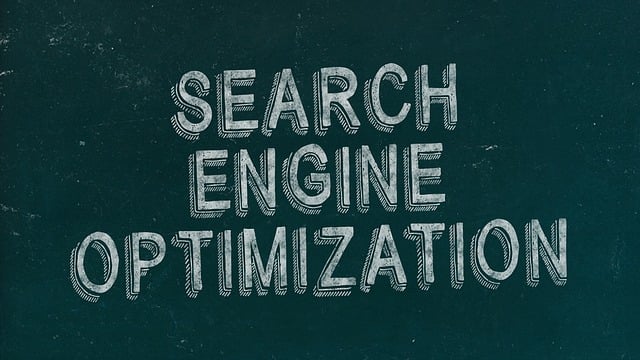In today's digital era, vehicle repair shops are leveraging Artificial Intelligence (AI) to optimize operations and stay competitive. AI systems, through data analysis and machine learning algorithms, streamline processes like predictive maintenance, diagnostics, and customer interactions. These intelligent solutions automate tasks, identify bottlenecks, and enable data-driven decisions, ultimately enhancing efficiency, reducing costs, and improving customer experiences. Case studies show successful AI implementations leading to increased productivity, cost savings, and client satisfaction in the competitive automotive industry.
“Revolutionize your vehicle repair shop with AI growth strategies. In today’s digital era, Artificial Intelligence (AI) offers transformative solutions for automotive businesses. This article guides you through understanding AI integration, from its benefits and initial steps to advanced implementation strategies. Discover how AI systems optimize repair shop performance by streamlining processes, enhancing efficiency, and improving accuracy. Explore real-world case studies showcasing the success of AI in the automotive sector. Unlock your shop’s potential with AI tracking for unparalleled results.”
- Understanding AI Integration in Vehicle Repair: Benefits and Initial Steps
- Strategies for Implementing AI Systems to Optimize Repair Shop Performance
- Case Studies: Real-World Success Stories of AI in Automotive Repair Shops
Understanding AI Integration in Vehicle Repair: Benefits and Initial Steps

In today’s digital era, vehicle repair shops are recognizing the immense potential that Artificial Intelligence (AI) offers in enhancing their operations and staying competitive. AI integration goes beyond simply adopting new technology; it involves strategic planning to leverage machine learning algorithms for various tasks within the shop. One of the key benefits is its ability to provide insightful data analysis, allowing managers to make informed decisions about inventory management, workforce allocation, and service offerings. By implementing AI systems, repair shops can streamline their processes, improving efficiency and reducing costs.
The initial steps towards embracing AI often involve identifying specific areas within the shop that can benefit from automation or data-driven insights. This could range from predictive maintenance, where AI systems analyze sensor data to anticipate equipment failures, to AI-powered diagnostics that assist technicians in identifying complex issues more accurately. Tracking repair shop performance using AI systems is a powerful strategy, enabling businesses to optimize their services and deliver exceptional customer experiences.
Strategies for Implementing AI Systems to Optimize Repair Shop Performance

Implementing AI systems offers vehicle repair shops a powerful tool to optimize their performance and stay ahead in an increasingly competitive market. These intelligent solutions can streamline various aspects of shop operations, from managing inventory and scheduling appointments to enhancing diagnostics and predictive maintenance. By leveraging machine learning algorithms, repair shops can gain valuable insights into their workflow, identify bottlenecks, and make data-driven decisions to improve efficiency.
AI systems for tracking repair shop performance can automate time-consuming tasks, such as data entry and reporting, freeing up staff to focus on more complex repairs and customer interactions. This not only increases productivity but also reduces errors and improves overall satisfaction. Moreover, AI-powered diagnostics can analyze sensor data from vehicles to predict potential issues before they become major problems, enabling proactive maintenance and reducing downtime for customers.
Case Studies: Real-World Success Stories of AI in Automotive Repair Shops

In the competitive automotive industry, vehicle repair shops are embracing Artificial Intelligence (AI) to streamline operations and gain a significant edge. Numerous real-world case studies showcase successful implementations of AI systems in repair shops, transforming their strategies for tracking repair shop performance. These stories highlight how AI can optimize various processes, from diagnostics and scheduling to parts management and customer engagement.
For instance, some repair shops have deployed AI algorithms to analyze vast amounts of data from vehicle sensors and maintenance records, enabling them to predict potential issues and proactively offer solutions. This not only enhances the overall efficiency but also fosters customer loyalty by demonstrating a personalized and forward-thinking approach. Other shops utilize AI chatbots for initial customer interaction, providing quick quotes and scheduling appointments, thereby improving response times and resource allocation. These case studies demonstrate that integrating AI systems can revolutionize repair shop management, leading to increased productivity, reduced costs, and enhanced client satisfaction.
AI integration offers vehicle repair shops significant advantages, from streamlining operations to enhancing efficiency. By adopting strategies like leveraging AI for predictive maintenance and optimizing scheduling, shops can reduce costs and improve customer satisfaction. The case studies presented demonstrate that embracing AI technologies is not just a trend but a proven path to success in the automotive industry. Implementing these systems enables repair shops to stay competitive and adapt to evolving market demands, ultimately tracking and enhancing their performance in meaningful ways.
